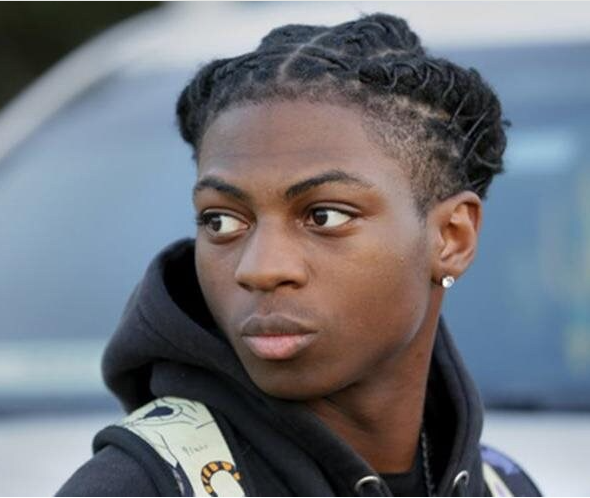
A judge decided on Thursday that the months-long penalty a Black high school student received from his Texas school district for not wanting to modify his hairdo did not violate a recently passed state statute that forbids discrimination based on race in hairstyles.
Darryl George, a junior in high school, has not attended his usual classes at his Houston-area school since August 31 due to a policy violation, according to Barbers Hill School District. The guideline limits the length of hair that boys are allowed to have.
The district filed a complaint, claiming that George’s long hair, which he wears on top of his head in knotted and twisted locs, is a violation of the dress code since, when let down, it would fall below his shirt collar, eyebrows, or earlobes. According to the district, other pupils who have locs adhere to the length policy.
Following several hours of testimony in Anahuac, state District Judge Chap Cain III decided in favor of the school district, stating that the CROWN Act permits the district to continue disciplining George for the length of his hair. George has either spent time in an off-site disciplinary program or been placed on in-school suspension at Barbers Hill High School in Mont Belvieu for the majority of the academic year.
Sara Leon, a school district lawyer, stated, “We appreciate the court giving clarity to the meaning of the CROWN Act.”
At the one-day trial in Anahuac, outside of Houston, where George and his mother, Darresha George, had traveled with hope, dozens of people showed up.
The fact that Darryl George was being punished by the school administration for his hairdo, in his words, “was just sad.”
How having hair makes him feel closer to his folks, he added. I feel more kin to my forefathers because of that. I’m the only one. I am the way I am.
Employers and educational institutions are not allowed to discriminate against employees or students based on their hair texture or protective hairstyles, such as Afros, braids, locs, twists, or Bantu knots, according to the CROWN Act, which went into effect in September.
Darryl George’s attorney, Allie Booker, called two witnesses: Darresha George and Democratic state representative Ron Reynolds, who co-wrote the CROWN Act.
According to Reynolds’ testimony, “length was inferred with the very nature of the style” rather than being explicitly addressed when the CROWN Act was being drafted.
According to Reynolds, “anyone familiar with braids, locs, or twists knows it requires a certain amount of length.”
When Cain pressed Reynolds to find out if the law addressed length explicitly, he responded that it is “almost impossible for a person to comply with this (grooming) policy and wear that protective hairstyle.”
In court filings, the school district said that because the CROWN Act doesn’t address or reference hair length, its policy doesn’t violate it.
Barbers Hill Superintendent Greg Poole stated that “being an American requires conformity” and that conventional dress code districts are safer and have superior academic achievement in a paid advertisement that appeared in the Houston Chronicle in January.
George’s family has also accused the school district, Gov. Greg Abbott, Attorney General Ken Paxton, and the Texas Education Agency of violating the CROWN Act and has filed a formal complaint with the agency as well as a federal civil rights lawsuit. A Galveston federal judge is hearing the case.
Two more teenagers filed a federal complaint in May 2020 over Barbers Hill’s hair policy. Both left the high school, but one came back after a federal judge issued a temporary injunction, finding that he would be violating his rights to free speech and to be immune from racial discrimination if he was prevented from going back. The legal action is still pending.
